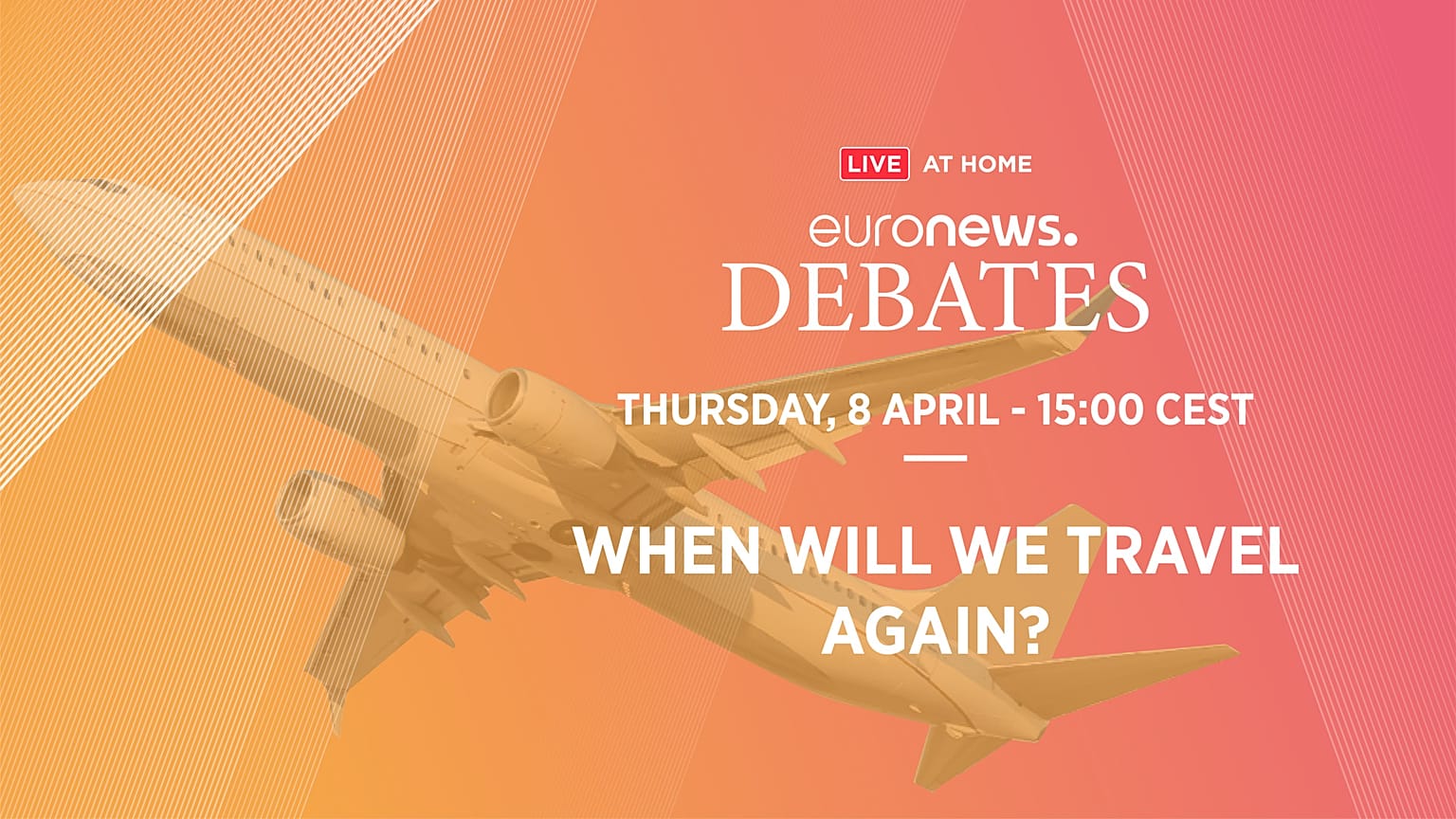For an industry devasted by the health crisis, and all the economic fallout that brings, the restart will not come soon enough. But how can travel resume safely?
After more than a year of Covid lockdowns, many of us are dreaming of getting away on holiday.
 ADVERTISEMENT
ADVERTISEMENT
 ADVERTISEMENT
ADVERTISEMENT
The rollout of vaccines in Europe and beyond is fuelling hopes that travel and tourism can take off again soon, satisfying all that pent-up demand. But with so many questions remaining over the pandemic, exactly how soon that will be remains uncertain.
For an industry devasted by the health crisis, and all the economic fallout that brings, the restart will not come soon enough. But how can travel resume safely?
Is this summer a reality for European and international tourism? Or will the focus be on making the most of domestic markets, travelling closer home?
What role will the vaccines and testing play in the rebound?
Euronews put these questions and more to a panel of top industry representatives on Thursday 8 April 2021 at 15:00 CEST (you can watch the full debate in the video player above).
What has been the impact of COVID-19 on the tourism industry?
The impact of COVID-19 on the tourism sector has been "devastating" said Gloria Guevara Manzo, President and CEO of the World Travel and Tourism Council.
While tourism represented 10.4% of the global economy in 2019, the sector's contribution shrank to 5.5% in 2020.
The industry, which contributes to one-tenth of employment on the planet, also lost 62 million jobs globally due to the pandemic.
"It's just the worst crisis. It is 18 times the financial crisis, that is the size of the impact,” Guevara Manzo told Euronews Debates.
On a more positive note, Chris L. Thompson, CEO of Brand USA, said that while the tourism industry was hit "the hardest and the quickest", it would also be fast to recover.
When will international travel resume?
All panellists agreed that domestic travel would resume first, playing a vital role in the months to come.
Maria Elena Rossi, Marketing and Promotion Director at Agenzia Nationale del Turismo (ENIT) in Italy said domestic travel would provide a lifeline to the country's economy this summer, as it did last year.
“Already before COVID, domestic travel represented 50% of our industry and so we do believe in this respect that domestic travel will be supporting the economy as much as possible,” Rossi told the panel.
Thompson emphasised the key role of domestic tourism in international destination branding.
"The very first thing that we have to do is to prove that we can bring our domestic tourism industry back so that our friends and visitors from around the world can actually see us enjoying the diversity of geography and experiences that the US has," he said.
But in the medium and long run, international travel will be key to ensure the sector's full recovery, said David Goodger, Managing Director, EMEA, Tourism Economics.
Forecasts suggest that international travel will not recover its 2019 levels until 2024, compared to 2022 for domestic travel, Goodger said.
The good news is, there is an appetite for international travel. According to a Euronews online poll, 82.8% of respondents said they were willing to go on holiday abroad this summer if it was allowed.
What role will vaccines and testing play?
Industry leaders were adamant that clear rules for mobility were needed for international travel to resume.
"What’s a big game-changer here is certainty. If we can have clear rules or clear mobility protocols that would allow resuming international travel, that is going to make a big difference," said Guevara Manzo.
In the EU,"the green digital certificate is exactly what we need in order to have clear rules for people to move," Guevara Manzo went on.
The European Commission proposed to create the pass last month to facilitate safe free movement inside the EU during the COVID-19 pandemic.
It will serve as an assurance that a person has been vaccinated against COVID-19, received a negative test result or recovered from COVID-19.
But vaccination alone is not the answer, considering the limited supply of shots. The sector will thus have to rely on a combination of vaccines, testing and immunity certificates to return to some kind of normality in the months to come, Guevara Manzo said.
How can industry actors adapt?
As they look to win back lost revenues, industry actors will need to adapt towards greater flexibility for the consumer, panellists said.
During the first wave of the pandemic, many European airlines came under fire after refusing to provide refunds to customers whose flights were cancelled due to coronavirus in contravention of EU regulations.
Andrew Van Der Feltz, Senior Director of Business Development at Expedia Group Media Solutions,highlighted the crucial importance of flexibility in terms of insurance cover and a full refund to build back trust with the consumer in uncertain times.
The current period also offers opportunities for branding and communications with consumers, Van der Feltz noted.
Will travel after COVID-19 be more sustainable?
Panellists discussed the emergence of the conscious traveller post-Covid -- individuals who are keen to have unique and authentic experiences while making a positive mark on the planet.
With volumes down in the context of the pandemic, the focus on quality over mass tourism will be even greater, Rossi noted.
Venice, for instance, has developed a new visitor management policy to reduce the impact of mass tourism, Rossi said.
As tourists seek to avoid overcrowded cities, these destinations will need to "develop more products" and "new experiences," Guevara Manzo recommended.



















